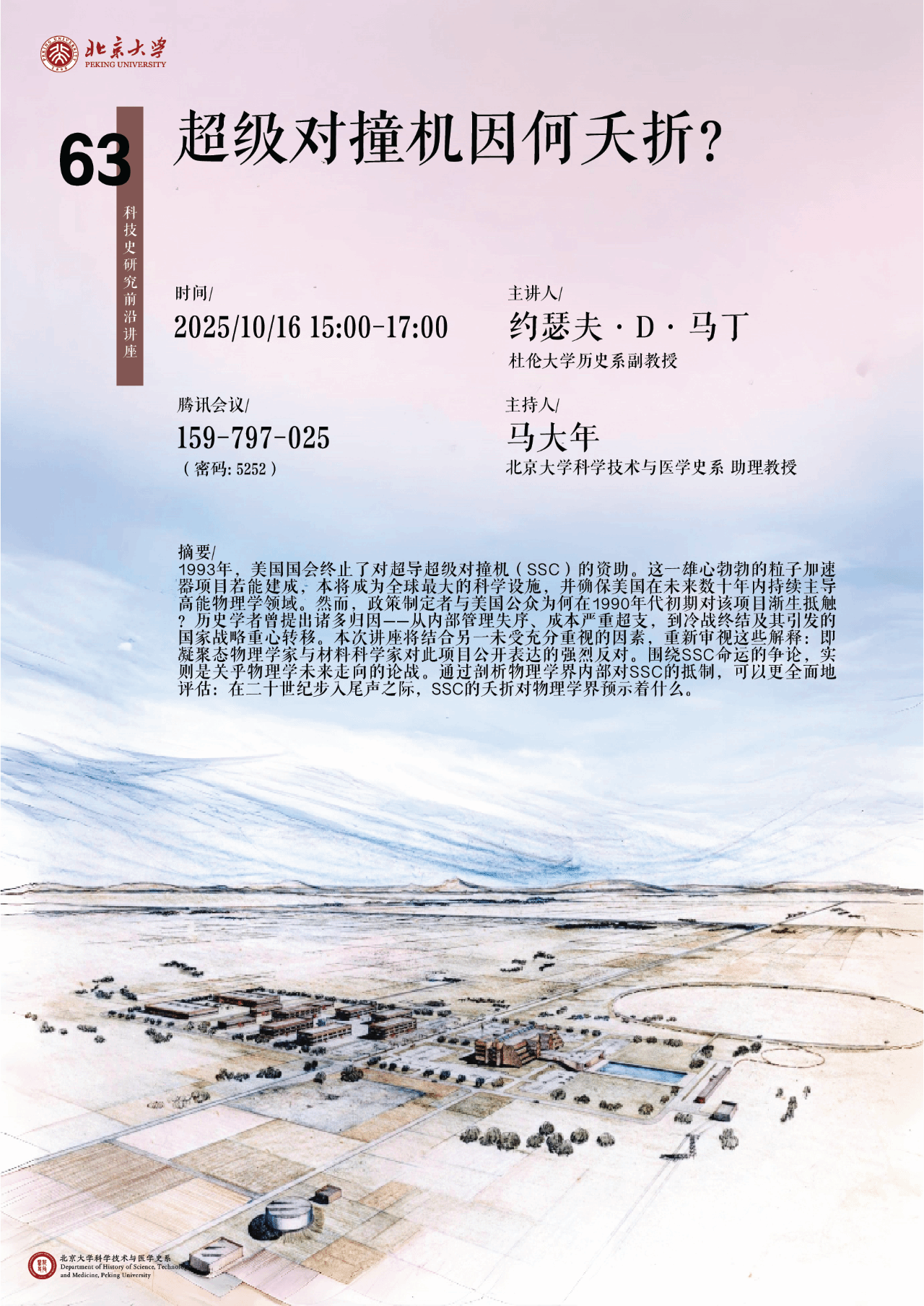
本讲摘要
In 1993, the US Congress eliminated funding for the Superconducting Super Collider (SSC). The audacious particle accelerator project, had it been built, would have been the world’s largest scientific instrument, securing US dominance in high-energy physics for years to come. Why, then, did both policymakers and the American public sour on the project in the early 1990s? Historians have proposed a number of reasons, ranging from internal mismanagement and cost overruns to the end of the Cold War and the shift in national priorities that accompanied it. This talk will explore those explanations in light of another, less appreciated factor: the vocal and public opposition condensed matter physicists and materials scientists mounted against the project. The fight over the fate of the SSC was a fight over the future of physics, and examining resistance to the project from within the physics community sustains a comprehensive assessment of what the SSC’s demise portended for physics as the twentieth century drew to a close.
1993年,美国国会终止了对超导超级对撞机(SSC)的资助。这一雄心勃勃的粒子加速器项目若能建成,本将成为全球最大的科学设施,并确保美国在未来数十年内持续主导高能物理学领域。然而,政策制定者与美国公众为何在1990年代初期对该项目渐生抵触?历史学者曾提出诸多归因——从内部管理失序、成本严重超支,到冷战终结及其引发的国家战略重心转移。本次讲座将结合另一未受充分重视的因素,重新审视这些解释:即凝聚态物理学家与材料科学家对此项目公开表达的强烈反对。围绕SSC命运的争论,实则是关乎物理学未来走向的论战。通过剖析物理学界内部对SSC的抵制,可以更全面地评估:在二十世纪步入尾声之际,SSC的夭折对物理学界预示着什么。
主讲人介绍
Joseph D. Martin is a historian of the modern physical sciences and technology, focusing primarily on the history of the sciences of materials and the role of materials in the shaping of modern science. He is chair of the editorial board of Historical Studies in the Natural Sciences and associate professor of history of science and technology at Durham University in the UK.
约瑟夫·D·马丁(Joseph D. Martin),现代物理科学与技术史学家,主要研究材料科学史及材料在塑造现代科学中的作用。现任《自然科学史研究》(Historical Studies in the Natural Sciences)期刊主编,英国杜伦大学历史系副教授。


